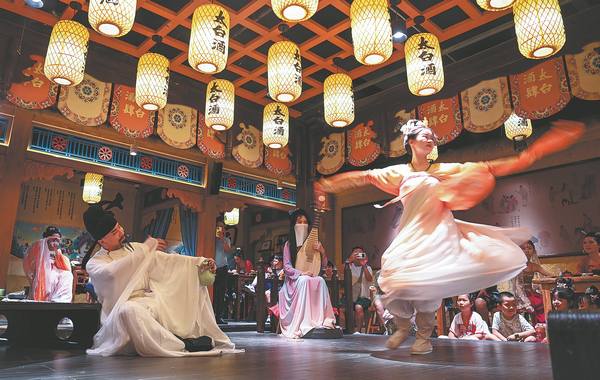Theme parks rise to cultural challenge
By YANG RAN and ZHAO RUINAN | China Daily | Updated: 2023-09-26 08:25

Nostalgic audiences
Han Shunfa, a professor at Nanjing Normal University's School of Journalism and Communication, said the popularity of entertainment related to Journey to the West is due to strong feelings of nostalgia among audiences and their familiarity with such stories. However, finding a suitable way to integrate this well-acknowledged IP with the theme park industry is quite a challenge.
Many operators have failed in attempts to make Journey to the West a winning theme park proposition, but this has not deterred others from trying. The Journey to the West Theme Park in Huai'an, Jiangsu province, which opened in 2021, is one of the latest attempts.
The park's owners recruited Zeitgeist Design & Production, a design company based in the United States which had a hand in designing Shanghai Disneyland, to work on conceptualization and storytelling at the Huai'an attraction. The park also engaged China Jingye Engineering Co, which helped build Shanghai Disneyland and Beijing Universal Resort, to be in charge of construction.
The park features parades and evening light shows. One visitor, Ada Zhang, 32, an influencer on the social media platform Xiao Hongshu, said many of its attractions, including rides, are similar to those at Shanghai Disneyland.
Evening events at the Huai'an venue are up to the standards of those at Shanghai Disneyland, Ada Zhang said, describing the latter venue as an "Eastern Disney". Other social media users have referred to it as a "Chinese version of Disneyland".
"Compared with their foreign counterparts, Chinese theme parks were late in starting, and most of them are still mimicking international venues," Zhang Zheng said.
"Local theme parks can learn a lot from well-established companies, which can help give them inspiration and ideas. We can then explore icons and IPs from China's traditional culture. There's no contradiction in this, because I think we're learning how they put projects together, rather than copying their cultural content."
























